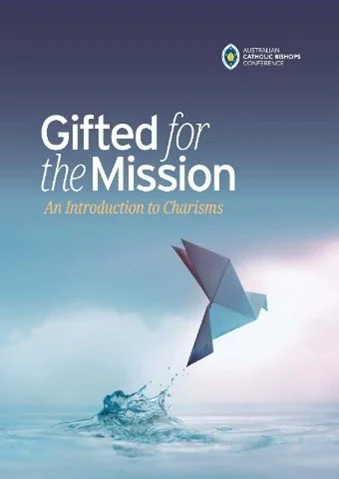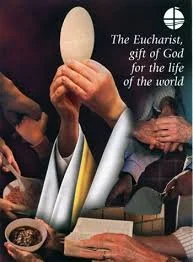Sharing Faith
Articles and Church Documents
Pope Leo’s Apostolic Exhortation: Dilexi te
https://cathnews.com/2025/10/10/prejudice-against-poor-an-inescapable-challenge-pope/
Australian Catholics have been encouraged to study the first Apostolic Exhortation to be released by Pope Leo XIV Dilexi te (“I have loved you” – Revelations 3:9). 10 October 2025
Pope Francis had begun writing the document, focused on the theme of love for the poor, before he died, and Pope Leo decided to make it his own with the addition of some reflections.
“I share the desire of my beloved predecessor that all Christians come to appreciate the close connection between Christ’s love and his summons to care for the poor,” Pope Leo writes in the introduction.
The 100-page document describes prejudice against the poor as an “inescapable challenge”.
“Not infrequently, our prosperity can make us blind to the needs of others and even make us think that our happiness and fulfilment depend on ourselves alone, apart from others.
“In such cases, the poor can act as silent teachers for us, making us conscious of our presumption and instilling within us a rightful spirit of humility.”
The document urges a multifaceted approach to poverty, including prayer, solidarity, welfare assistance, almsgiving and working to ensure social justice.
“Through your work, your efforts to change unjust social structures or your simple, heartfelt gesture of closeness and support, the poor will come to realise that Jesus’s words are addressed personally to each of them: ‘I have loved you’ (Rev 3:9),” the document concludes.
Townsville Bishop Timothy Harris, chair of the Bishops Commission for Social Justice, Mission and Service, said it was an important document in that it drew focus on love for the poor.
“It is significant that Pope Leo should publish his first Apostolic Exhortation in continuity with Pope Francis’s Dilexit nos (“He Loved Us”), as this immediately identifies poverty as a priority under the new papacy,” Bishop Harris said.
“In studying Dilexi te, we can come to appreciate the close connection between Christ’s love and his summons to care for the poor.
“Dilexi te reminds us that it is essential that we recognise Jesus in the poor and the suffering. It is here we see the very heart of Christ. Pope Leo reminds us of the importance of loving the poor, as Jesus did.”
Bishop Harris encouraged “close study of the statement, and careful consideration of ways in which its message can be engaged thoughtfully and applied in local acts of mercy, service and works”.
The full statement can be found at this website.
A quote from Pope Leo XIV’s apostolic exhortation Dilexi Te (CNS illustration/Joanna Kohorst with photo by Lola Gomez)
A quote from Pope Leo XIV’s apostolic exhortation Dilexi Te (CNS illustration/Joanna Kohorst with photo by Lola Gomez)
Bishops publish new document on charisms: Gifted for the Mission
Gifted for the Mission is published by the Bishops Commission for Evangelisation, Laity and Ministry, a commission of the Australian Catholic Bishops Conference.
A new document on charisms seeks to engage all the baptised in the evangelising mission of the Church.
‘Gifted for the Mission: An Introduction to Charisms’ was developed by the Bishops Commission for Evangelisation, Laity and Ministry (BCELM) and its advisory council over the past 12 months.
It builds upon the principles of the 2023 document, ‘Evangelisation: Encounter, Discipleship, Mission’.
‘Gifted for the Mission’ introduces the concept of charisms through reference to the writings of St Paul. We learn about the charisms first from the Scriptures. The word charism simply means ‘gift’. The word comes to us from St Paul, who used it to describe a certain type of gift that the Holy Spirit gives to us.
“Charisms are given to individuals to assist others to encounter Jesus Christ, to help them live as missionary disciples, and to transform society in the light of the Gospel. ‘My’ charisms are not for me; they are given to me for the sake of others,” the document states. By discovering and using one’s charisms, each individual contributes to helping the Church fulfill her mission in the world, BCELM chair Archbishop Christopher Prowse said.
“Every Christian receives charisms from the Holy Spirit and every Christian has an evangelising mission in the Church,” he said. “Discerning your charisms is a clue to your mission. Paul provides several different lists of charisms (see 1 Corinthians 12: 4-11, Romans 12:6-8; See also Ephesian 4:7-12, and 1 Peter 4:8-11).
These lists include eye-catching charisms such as healing, miracles, words of knowledge, and speaking in tongues, but these are not the only charisms that St Paul mentions. He also includes less dramatic gifts in these lists such as helps, encouragement, service, mercy, and administration. We should not think that these lists are exhaustive (this is because the lists are not identical, indicating that St Paul did not think that these lists were comprehensive).
Accompanying the document is a new video series on Evangelise Plus, called ‘The Gift of Charism’. The series features interviews with Catholics from around Australia who share their experiences of discerning and using their charisms in parish, personal and professional settings.
Download ‘Gifted for the Mission: An Introduction to Charisms’ at https://www.catholic.au/s/article/gifted-for-the-mission
View the Evangelise Plus video series, ‘The Gift of Charism’ at https://www.evangeliseplus.com.au/the-gift-of-charism
DILEXIT NOS - Encyclical on Sacred Heart of Jesus
The Pope had said in June, the month the Church traditionally dedicates to the Sacred Heart of Jesus, that he was going to release a document in the European autumn on the devotion to ‘illuminate the path of ecclesial renewal, but also to say something significant to a world that seems to have lost its heart’.
The encyclical includes numerous reflections from the Bible, previous magisterial texts and the writings of saints and his fellow Jesuits, to repropose to the whole Church the centuries-old devotion. Since 1899, there have been four papal encyclicals and numerous papal texts dedicated to the Sacred Heart—a symbol of Jesus’ infinite love, which moves the faithful to love one another.
‘In the deepest fibre of our being, we were made to love and to be loved,’ the Pope writes.
'Dilexit nos': Pope to publish encyclical on Sacred Heart of Jesus
https://www.vaticannews.va/en/pope/news/2024-10
On Thursday, Pope Francis will publish a new encyclical focusing on the Sacred Heart of Jesus, in the context of a world "which seems to have lost its heart."
By Salvatore Cernuzio
"Dilexit nos" (He Loved Us) will be Pope Francis' fourth encyclical, and it comes at a time of profound global challenges.
The world today is scarred by war, social and economic imbalances, rampant consumerism, and technologies that threaten to undermine human nature.
With this document, Pope Francis will call for a change of perspective, urging humanity to rediscover what is most essential: the heart.
The Pope’s Announcement
The full title of the encyclical, "Dilexit Nos - Encyclical Letter on the Human and Divine Love of the Heart of Jesus Christ," was confirmed today by the Vatican Press Office, with its release set for October 24.
Human Dignity
The Dicastery for the Doctrine of the Faith’s new document 'Dignitas infinita' (“Infinite Dignity”), took five years to complete, and builds on the papal magisterium of the last decade: from war to poverty, from violence against migrants to violence against women, from abortion to surrogate motherhood to euthanasia, from gender theory to digital violence.
The main novelty of the document, which is the fruit of five years' work, is the inclusion of a number of key themes from the recent papal magisterium that accompany the bioethical ones. In the 'non-exhaustive' list that is offered, abortion, euthanasia and surrogate motherhood are listed as violations of human dignity alongside war, poverty and human trafficking.
Blessings
The Dicastery for the Doctrine of the Faith issued a press release on Jan. 4 “to help clarify the reception of Fiducia Supplicans,” the declaration issued by the dicastery on Dec. 18 that allowed the giving of simple or pastoral blessings to couples in irregular situations, including in same-sex unions. The original declaration stated that such blessings were for the couples, not for the particular situation in which the two people happened to be—whether divorced and remarried or in a same-sex union.
Sacramentals are rites instituted by the Church, and so God has not promised to distribute his grace on each and every occasion that they are performed.
The Catechism states:
Sacramentals do not confer the grace of the Holy Spirit in the way that the sacraments do, but by the Church's prayer, they prepare us to receive grace and dispose us to cooperate with it (CCC 1670).
In general, whether an invocative blessing has its intended effect will depend on the piety of the one receiving the blessing and whether it is God’s will for the person to receive the intended good.
O Antiphons
Why they are called the “O Antiphons”?
Each night for the octave (8 days) before Christmas, we ask Christ to come, and call him by a different name. Each of these names starts with “O”, such as “O Come O Come Emmanuel”. An antiphon is a liturgical composition, and they are traditionally sung. Therefore, they are called the O Antiphons.
When do the O Antiphons start?
The O Antiphons start on Dec 17 and run through Dec 24. This time is known as the “second part of Advent” or “The Golden Nights.” The O Antiphons are taken from the Liturgy of the Hours (specifically, evening prayers, or “vespers”). So, because they are traditionally said in the evening, there is not one for Dec 24 because the evening on Christmas Eve is already the vigil of Christmas, so we are no longer waiting.
What do the O Antiphons mean?
The O Antiphons get across 2 messages: each one highlights a different title for the Messiah (listed below), and each one refers to the prophecy of the Messiah from Isaiah.
Dec 17: O Sapientia (Wisdom)
Dec 18: O Adonai (Lord and Ruler)
Dec 19: O Radix Jesse (Root of Jesse)
Dec 20: O Clavis David (Key of David)
Dec 21: O Oriens (Dawn of the East)
Dec 22: O Rex Gentium (King of the Gentiles)
Dec 23: O Emmanuel (God With Us)
What’s with the “ERO CRAS”?
If you take the first letter of each name and write them backwards, you get “ERO CRAS.” This means “Tomorrow, I will Come” in Latin. So that’s why you see that written in a lot of places with the O Antiphons.
An introduction to St Mark's Gospel
The gospel of Mark is sometimes portrayed as a ‘no fuss’ gospel. Nowhere is this more clearly seen than in this week’s passage. We have the first eight verses of the gospel and the author wastes no time in announcing the purpose, ‘The beginning of the Good News about Jesus Christ, the Son of God.’
The gospel of Mark does not give any infancy narrative or genealogy like Matthew or Luke, nor a theological foreword like John. It jumps straight in with a declaration that Jesus is the Son of God and almost immediately begins to explore his ministry.
Eucharist is a Verb
Reflecting on our understanding and appreciation of what we are doing.
Eucharist is something we do liturgically so we can live it daily. We come together on Sunday, firstly to listen to the Word of God and reflect on its meaning for life now. Then we respond to that Word by doing as Jesus commanded us to do in his memory. The emphasis is on the word ‘DO’.
Eucharist is a verb, an action. In fact, it is a four-part action: Take, Bless, Break, Give.
Please click on the links to read more detail.
apostolic exhortation Laudate Deum (“Praise God”)
‘Laudate Deum’: A brief guide for busy readers
https://www.pillarcatholic.com/p/laudate-deum-a-brief-guide-for-busy
LUKE COPPEN
October 4, 2023
The world is not moving fast enough to mitigate the devastating effects of climate change, Pope Francis said Wednesday. Writing in his new apostolic exhortation Laudate Deum (“Praise God”), released on the Oct. 4 feast of St. Francis of Assisi, the pope said the planet was approaching a “point of no return” as global warming hurtled toward the maximum recommended limit of 1.5 degrees Celsius (2.7 Fahrenheit) higher than the pre-industrial average.
“Even if we do not reach this point of no return, it is certain that the consequences would be disastrous and precipitous measures would have to be taken, at enormous cost and with grave and intolerable economic and social effects,” he wrote.
“Although the measures that we can take now are costly, the cost will be all the more burdensome the longer we wait.”
While that is the text’s headline message, the document — a sequel to Francis’ 2015 encyclical Laudato si’ — contains much else besides. Here’s a brief guide for busy readers.
Catholics reminded to preach the Gospel always, everywhere
Catholics are being urged to “preach all the Gospel, to all the world, all the time” and to consider encounter, discipleship and mission from their Catholic foundations in a new document from the Bishops Commission for Evangelisation, Laity and Ministry. Source: ACBC Media Blog.
The document, titled Evangelisation, offers a scriptural and theological reflection on the proclamation of the Gospel through the lenses of encounter, discipleship and mission.
It draws on seminal documents on evangelisation from recent decades, including the teachings of Popes Paul VI, John Paul II, Benedict XVI and Francis.
Church leaders in Australia welcome Synod working document
PUBLISHED 21 June 2023 WRITTEN BY Australian Catholic Bishops Conference (ACBC)
As the Church approaches the first session of the forthcoming Synod of Bishops, Australian Catholics are being encouraged to continue their engagement with the global synodal journey through prayer, ongoing discernment and local conversations.
On Tuesday evening, the Secretariat of the Synod published the Instrumentum Laboris, or working document, for the first session of the XVI Ordinary General Assembly of the Synod of Bishops—commonly referred to as the Synod on Synodality.
The first session will take place this October; the second and final session is scheduled for October 2024.
DESIDERIO DESIDERAVI (29 June 2022)
On the Liturgical Formation of the People of God
What You Should Know About Pope Francis’ Apostolic Letter on the Liturgy
What is Desiderio desideravi?
Desiderio desideravi, the title of Pope Francis’ 2022 document on the liturgy, comes from the Latin version of Luke 22:15: “I have earnestly desired (desiderio desideravi) to eat this Passover with you before I suffer.” Pope Francis begins this beautiful and relatively short reflection on the beauty, goodness, and truth of the liturgy by reminding us of the Trinity’s love for us and desire for us.
Key Points of Desiderio desideravi
The document itself is relatively short compared to other writings from Pope Francis. It is worth reading in its entirety. This article is not a commentary on the document. Here is offered a brief summary of some of the key points of the document.
What does it mean to be redeemed by Christ?
So the Scriptures tell us that to follow Christ is to have a new mind. That’s true isn’t it? One of the key calls to the Christian, and a word we find in the Gospels again and again is metanoia….
Pope Francis' encyclical, Laudato Si' (“Praised Be You”)
Pope Francis’ recent encyclical, ‘Laudato Si’, has been one of the most widely anticipated papal documents in recent memory. It has also received far more popular commentary than would be expected of the papal encyclical. Yet, while Laudato Si’ has been widely dubbled '“the climate change” encyclical, it is far broader than that. It is also a far-reaching analysis of a number of political, economic, social and legal issues, in addition to being an extensive exposition on human duties toward creation.
Pope Francis’ encyclical, Fratelli Tutti – On Fraternity and Social Friendship promotes a vision of social friendship grounded in the unity of the entire human family: all people are sisters and brothers to one another, all are children of God with equal dignity and rights: “Let us dream, then, as a single human family, as fellow travellers sharing the same flesh, as children of the same earth which is our common home, each of us bringing the richness of his or her beliefs and convictions, each of us with his or her own voice, brothers and sisters all.”






